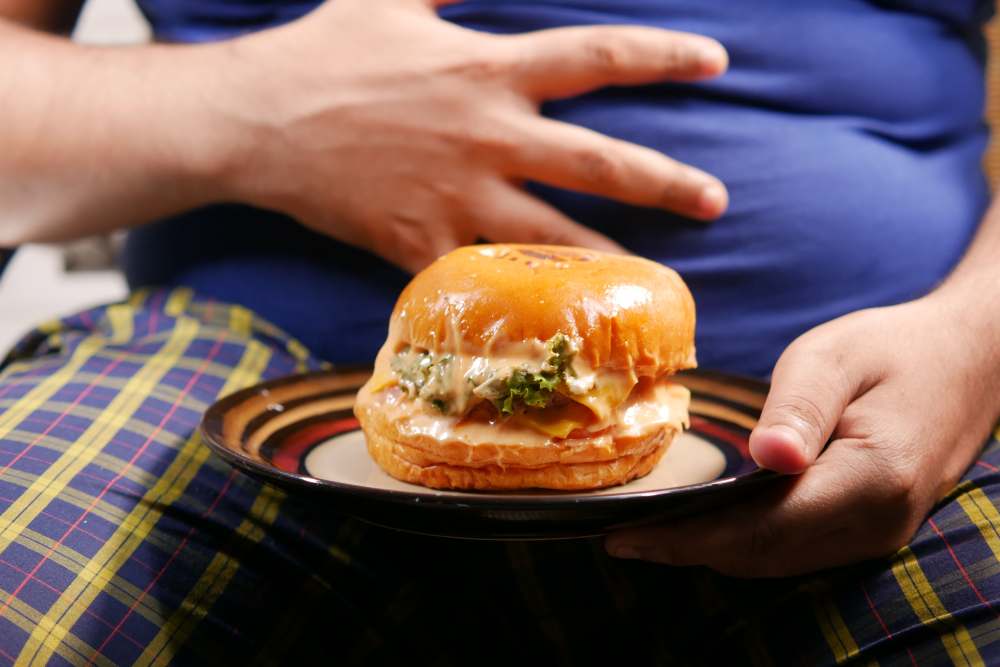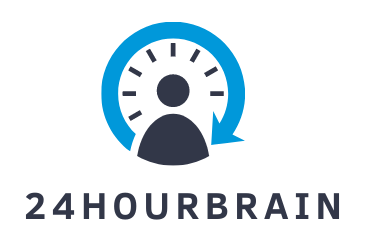Anyone who has tried intermittent fasting knows how difficult it is to stick to it. This includes both fasting for a few days and practicing interval fasting over a longer period of time.
Intermittent fasting has significant benefits that become apparent after several weeks of practice. That’s how it went for me; I hadn’t noticed any significant changes in my body after a few days of fasting.
It wasn’t until I focused on sticking with it and doing the 16:8 Intermittent Fasting for several weeks at a time that I noticed significant changes in my body.
I had lost a significant amount of weight and had more energy in my daily routine! In addition, I demonstrated a desire to exercise, which I then put into practice through bodyweight training. Meanwhile, I’ve been doing intermittent fasting for four years.
How Do You Stay Motivated to Keep Going?
To stick with intermittent fasting and get its benefits, one must first choose the right type of intermittent fasting (for example, 16:8), support the process with the right foods, and set realistic goals.
Clearly, interval fasting works and has significant benefits if a few key points are followed. These are illustrated in the following.
Before you start interval fasting, you should talk to a doctor if you are pregnant or have a long-term illness.

One’s Self-Expectation Attitude
On the Internet and in magazines, there are claims like “beach figure in 2 weeks by interval fasting.” This, of course, is not possible. You should be aware that intermittent fasting is only effective for long-term weight loss if done consistently for several weeks.
There’s also the issue of why you want to do interval fasting. Do you want to lose weight, improve your digestion, or increase your energy levels? Interval fasting allows you to accomplish all of these goals.
However, not all of these objectives are achievable with every type of interval fasting. That means you’ll need to experiment a little to find the best type of interval fasting for you. Losing weight does not result in a good figure. Exercise in conjunction with intermittent fasting is something to think about here.
What Are the Different Types of Interval Fasting?
0 in 2 diet
Alternating daily between normal intake and abstinence
A typical day’s food intake
Absence the following day (only water, unsweetened tea, and black coffee)
Intermittent fasting at 5:2
5 days a week, normal intake
Reduce your food intake on these two days.
A balanced diet should provide 500–600 calories.
16:8 diet
Food intake for 8 hours at any time.
Then there’s a 16-hour fast (only water, unsweetened teas, and black coffee are allowed).
What Are the Possible Consequences?
Of course, there will be side effects to intermittent fasting. However, you should not let this deter you from achieving your primary objective.
- Evening fatigue can occur, but it is frequently perceived positively.
- Dizziness and headaches are possible, especially at first. We recommend that you drink plenty of water to avoid this.
- Cravings and bad moods may occur during the first few days, but they will fade as the body adjusts to the new diet.
- Intermittent fasting should not be used as a diet by pregnant women or women who are breastfeeding, as well as people who have an eating disorder.
- A trusted doctor should be consulted first in the case of a chronic disease.

So, How Exactly Does Intermittent Fasting Work?
During intermittent fasting, you alternate between eating normally and not eating at all. Fasting causes a reduction in caloric intake, which results in significant weight loss.
The cleansing and healing effect that prolonged periods of no solid food intake are said to have on the body is one of the great promises of intermittent fasting.
Autophagy, a type of recycling function of damaged cells, begins after about 12 hours without food intake and is the foundation of fasting’s health-promoting effect: damaged cells are renewed or destroyed by the body.
It is important to note that this process can take place only when the body is not engaged in digestive processes.
Weight loss is encouraged in this manner, and the risk of certain diseases is reduced. Animal tests have also shown a longer life expectancy, lower rates of age-related diseases, and better blood pressure.
Many things learned from studies on animals can’t be directly applied to people, but they can show a trend.
What to Avoid While Fasting in Intervals
There isn’t much you can do wrong. However, as an interval fasting guide, you should consider a few tips and tricks that we have summarized in a short checklist. If you pay attention to these points, nothing will stand in your way!
Approach your dietary change gradually and calmly!
If it’s hard at first, your stomach grumbles, and you have trouble falling asleep, increase the number of hours without food slowly but steadily.
Pay attention to your instincts and develop your own routine
Determine which routine you prefer first. Don’t want to miss out on breakfast? Begin in the morning and end in the afternoon. Do you prefer dinner? Skip breakfast and stop eating in the evening.
Concentrate on what is good for you
Your body is not a mechanical device. Allow your body enough time to adjust to the change. You’ll get used to it quickly and feel great.
Avoid as much stress as possible!
You should relax to give your body time to adjust, especially during the intermittent fasting periods. So avoid exposing yourself to unnecessary stress.
A nutritious and well-balanced diet goes without saying!
Even though intermittent fasting is relatively flexible, you should not waste your fast-free time on junk food and soft drinks. Drink plenty of water as well. During the fast, unsweetened tea and black coffee are permitted.
Don’t be driven insane by exceptions!
Did you still go out to dinner with your friends or did you break your fast early for breakfast? Don’t stress yourself out. Exceptions, as long as they remain exceptions, will not prevent you from reaching your goal.

The Most Common Interval Fasting Method Is 16:8
The 16:8 diet works on an hourly basis rather than a daily basis; normal food is allowed for 8 hours per day, and the remaining 16 hours are abstained from.
Water, coffee, and unsweetened tea are the only beverages permitted. At first glance, this seems like a very easy way to do interval fasting, since things like bedtime can be kept separate from the fasting period every day.
As a result, you can adapt the eating phase to your eating habits and daily routine relatively easily. However, because habituation is important here as well, the phase remains fixed-even on weekends and holidays.
This is the first, but not the only, issue for many people, as spontaneity is also severely limited. However, you will quickly notice which phase best suits you and your preferences during the first period.
Unlike the other methods, the calorie intake here does not vary much during the free meal times. However, the long pause between eating phases has critical effects in achieving and maintaining ideal weight and health.
Of course, even with these benefits of intermittent fasting, if you live on junk food and sweets, you’ll be treading water.
Who Should Follow the 16:8 Diet?
- This diet is also doable for any healthy and disciplined person.
- Intermittent fasting 16:8 is good for people who like to stick to a routine and can handle small changes often.
- People who sleep and wake up at different times or who travel often and for long periods of time will have trouble.
- People who can’t stop eating small snacks in addition to large meals will use this method to celebrate their successes.
- People who are used to eating several small meals throughout the day, on the other hand, will struggle with this time constraint.
What Should I Remember While Following the 16:8 Diet?
- Self-organization
What time of day do I want to eat?
Which time frame works best for my leisure activities?
- Self-discipline
Maintain your chosen time frame.
Adjust your dinner plans to accommodate your eating schedule.
- Perseverance
Don’t give up if things are difficult at first.
Allow your body time to adjust to the change.
Which Meals Should I Forego While on Intermittent Fasting?
Most people should skip breakfast and start with lunch as their first meal. If daily carbohydrates are still pushed to dinner, it has been shown that leptin levels rise throughout the day.
Leptin is the hormone that causes satiety, so hunger pangs are absent. This makes it very simple to stick to this diet indefinitely, especially if you are trying to lose weight for the first time. Because of the lack of or reduced hunger, the phase of increased fat burn, which occurs after approximately 10–13 hours of chamfering, is unaffected.
Also, if it’s done right, the feared “yo-yo” effect doesn’t happen because the metabolism doesn’t slow down and muscles don’t get smaller.
So, if you want to lose weight but don’t want to give up certain foods and prefer to stick to a routine, intermittent fasting will work for you.

Combining Exercise and Intermittent Fasting
Intermittent fasting entails going without food for a longer period of time, which may raise concerns that you won’t be able to perform at your best. Is this correct?
Does intermittent fasting have an effect on my performance?
Are you concerned that you won’t be able to perform well in sports after a long period of abstinence? Are you concerned that you won’t be able to give your best performance?
These concerns have been debunked by research. Resistance and performance during the fasting phase are not lower than during the food intake phases.
After about 10–12 hours without food, especially in a sober state, the energy required for sports is primarily drawn from fat reserves!
Muscle Building through Intermittent Fasting
If your goal is to build muscle rather than lose weight, interval fasting methods may be more difficult to achieve.
Intermittent fasting saves calories that you need to build muscle because there is no energy intake for a long period of time.
Fasting not only reduces your energy intake, but it also alters your hunger pangs and other relevant hormonal processes. Trying to create a caloric surplus for muscle building through high-energy foods can thus be difficult.
On the plus side, the body uses fat as an energy source during the fasting phase. It receives nutrients and energy after training that it can use right away.
It is usually advised to schedule your intense training at the end of your fasting period and to break the fast with your first meal after your workout. Thus, with a few modifications, the 16:8 diet can be used to gain lean mass.
10 Intermittent Fasting Tips for Beginners
Here are the top ten tips for beginners to help you get started with intermittent fasting
1. Don’t hesitate, just do it.
You can read as many articles and watch as many videos about intermittent fasting as you want. At the end of the day, however, it is critical that you simply begin. Because without this first step, you’ll never know whether interval fasting is right for you.
2. Slowly approaching
As a beginner, you should avoid overexerting yourself. Many inexperienced people are overwhelmed by the 5 to 2 method in particular. At first, use the 16:8 method.
3. Choose the method that works best for you.
This is directly related to the previous point. After all, not everyone responds equally well to every type of intermittent fasting. You should not give up your breakfast if it is sacred to you.
4. Intermittent fasting periods are secondary.
It makes no difference whether you break the fast at 8:00 a.m. or at lunchtime. You are in the green zone as long as the periods of not eating are observed. That’s what makes the 16/8 method appealing to beginners: it’s easy to incorporate into any daily routine.
5. Consume a lot of food to get enough calories.
You can’t perform if you don’t eat and drink properly. That is why it is critical that you eat enough food during mealtime. Especially athletes need to keep an eye on their caloric balance to make sure that interval fasting doesn’t cause them to lose too many calories.
6. Consume foods that will keep you full for a long time.
Complex carbohydrates that keep you full for an extended period of time will be beneficial. Fillers can be potatoes, sweet potatoes, or legumes. However, protein (cottage cheese, tofu, lentils, etc.) is equally important and fills you up for a long time.
7. Hunger and thirst are not the same thing.
Thirst is frequently confused with hunger in the morning. To compensate for mineral loss during the night, drink a large glass of water immediately after waking up. Frequently, the hunger returns.
8. A daily schedule aids in fasting.
Do you struggle to find the best times for you? Then an interval fasting daily plan is a good option for you. Set a time in advance for breaking the fast and stick to it.
9. Continue to be Active
You should not use Intermittent Fasting as an excuse to avoid physical activity. Then you should be active, whether it’s through walks, yoga, or going to the gym. Exercising will boost your metabolism even more!
10. Take note of your accomplishments.
Make a list of your interval fasting successes. How much weight have you lost so far, and how do you feel? Regularly write it down and enjoy the results!

The Most Frequently Asked Questions about Intermittent Fasting
Can I have milk or sugar with my morning coffee?
A: No, you can’t eat anything that raises your insulin level while you’re fasting.
What if I eat something during the fasting period?
A: Intermittent fasting serves two purposes. First, it prevents the body from consuming too many calories, thereby regulating weight; second, it induces autophagy, in which the body increases cell regeneration rather than cell formation.
Both of these functions are thought to be beneficial to one’s health. Eating or drinking something small and low in calories during the fasting phase has little effect on weight control. Autophagy, on the other hand, is almost certainly slowed down by this, since it only happens after a longer time without food.
Is intermittent fasting bad for your metabolism?
A: Our metabolism is always active and is primarily stimulated by physical activity. In this regard, intermittent fasting is not harmful to the metabolism.
Is it possible to gain muscle mass despite intermittent fasting?
A: With the proper macronutrient distribution, amount, and timing, you can build muscle even while fasting intermittently. The build-up is slower than in a bodybuilder’s mass phase, but you avoid the simultaneous build-up of a large amount of body fat, which bodybuilders must break down again after their mass phase.
How long must I practice intermittent fasting?
A: It depends on what you want to accomplish. Intermittent fasting can be done for years if you are healthy. I’ve been doing it for four years, and I love it.
Are calorie-free soft drinks permitted during the fasting period?
A: No, even calorie-free soft drinks are not permitted during the fasting period because they disrupt the process. Water, unsweetened coffee, and green or black tea (no fruit tea) are the only beverages permitted.
Can I vary my fasting times while on intermittent fasting?
A: It makes no difference when the 16-hour fast is observed (for 16:8 fasting). You can skip breakfast and dinner one day. However, a specific routine and discipline has been shown to be effective.
Is there anything I can’t eat while fasting?
A: No, there are no restrictions while eating. However, sweets, alcohol, and junk food will not help you achieve your goal. The more you avoid such foods, the better your chances of success.
When does intermittent fasting begin to burn fat?
A: According to research, intermittent fasting quickly melts fat. The body switches to fat burning after about 12 hours of fasting. When we don’t eat, our bodies turn to our fat reserves for fuel, breaking down the fat.



1 thought on “How to Stay Focused On Intermittent Fasting”
Comments are closed.